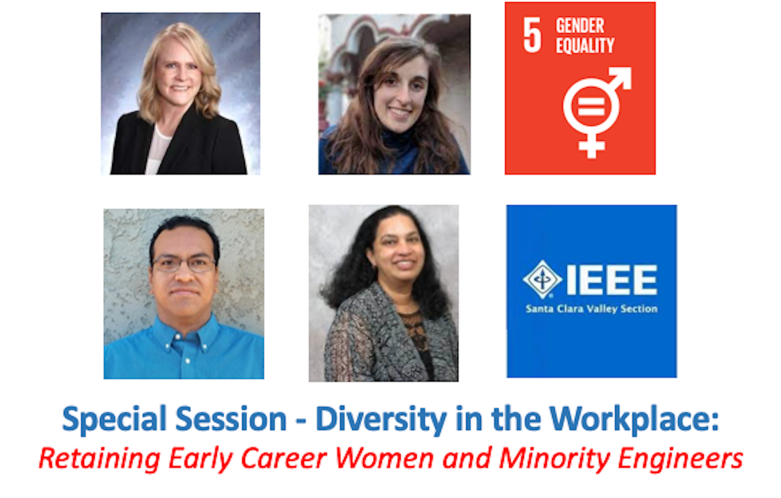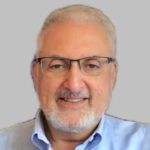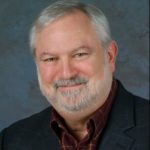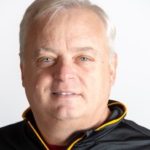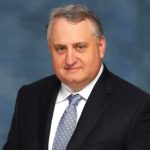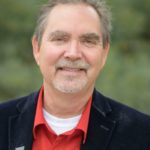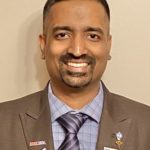GHTC 2022 will feature these Panel Sessions
- *Special Session: Diversity in the Workplace: Retaining Early Career Women and Minority Engineers (September 8, 2022 | 6:00 – 9:00 PM)
- Quality Education Online and the Way Forward (September 9, 2022 | 1:00 PM – 2:00 PM)
- *Special Session: Communications, Computing, and Power during Disaster Response (September 9, 2022 | 6:00 – 9:00 PM)
- Advancing DEI in Journalism with Tech: Opportunities and Guardrails (September 10, 2022 | 2:00 PM – 2:50 PM
- Web3 and Human Rights (September 11, 2022 | 10:00 AM – 10:50 AM)
- IEEE HAC Capacity Building (September 11, 2022 | 1:00 PM – 1:50 PM)
- *Safety for Autonomous Vehicles: Addressing Interoperability and Dependability Challenges with IEEE P2851 (September 11, 2022 | 6:00 PM – 8:00 PM)
* co-located event open to public with separate registration
Special Session: Diversity in the Workplace: Retaining Early Career Women and Minority Engineers
September 8th, 2022 | 7:00 PM – 9:00 PM, Location: SCDI 1302 and 1308
(Networking & Pizza in Courtyard 6:00 PM – 7:00 PM)
Moderator: Erin Shelby, Shelby HR Solutions
Facilitators for this session include:
-
Erin Shelby, PHR, Shelby HR Solutions,
-
Claire Wemp, Ph.D., Thermal Applications Engineer, DuPont,
-
Juan Vargas, M.S., Senior Project Engineer, Devcon Construction, and
-
Jeewika Ranaweera, Ph.D., Principal Hardware Engineer, Oracle.
Organized by: Kim Parnell, Ph.D., P.E., Parnell Engineering & Consulting & IEEE-CNSV Board Member
Note: IEEE-CNSV organized free event open to the public, but pre-registration is required due to limited space. GHTC attendees must also register here for this public event.
(Every person who attends this Special Event will receive a refund of the $10 Eventbrite Registration fee.)
Register at: https://www.eventbrite.com/e/394078678937)
Gender equality is one of the UN Sustainable Development Goals on which GHTC is focused. Additionally, the technology industry is increasingly aware of the need to include a variety of backgrounds and capabilities in the workforce. This session will be an open discussion on challenges and opportunities facing young engineers, women in engineering, and minorities in academia and industry. Topics to be covered include opportunities for networking, mentoring, and finding role models.
Claire Wemp is a Thermal Applications Engineer at the DuPont Silicon Valley Technology Center in Sunnyvale, CA. She is a Mechanical Engineering graduate of both Santa Clara University and UC Berkeley for her MS/PhD. Throughout that time, she has held leadership roles in both University and Professional chapters of Society of Women Engineers (SWE) and is the chair for the Bay Area DuPont Women’s Network. She is a passionate advocate for increasing the pipeline of women and underrepresented minorities in STEM fields. In her free time, Claire does music and dance and lives in San Jose’s Japan Town with her husband.
Erin Shelby, owner of Shelby HR Solutions, is passionate about engaging with her clients, while collaborating with senior leadership in assessing and implementing integrity-based performance standards. Embracing a background in public and private companies, including 30 years of HR leadership for the US District Court, California State Assembly, Sutter Health and HGA Architects and Engineers, Erin navigates easily through bureaucratic organizations and has served in an advisory capacity to senior leadership up to and including the CEO.
Juan Vargas is a Senior Project Engineer at Devcon Construction in Milpitas, CA. He is a previously undocumented, first-generation college graduate who moved to the Bay Area from Southern California. Juan received his B.S. in Civil Engineering and M.S. in Construction Management from Santa Clara University. During his time at SCU, Juan was a seismic research assistant and was involved in multiple groups on campus, including the Society of Hispanic Professional Engineers, where he served as Vice President. He enjoys creating and maintaining new and old friendships, and he is always happy to share what he has learned, especially with people from underrepresented communities.
Jeewika Ranaweera is a Principal Hardware Engineer at Oracle and Chair, IEEE Women in Engineering (WIE) for the Santa Clara Valley (SCV) Section. She has a diverse engineering journey which began in Sri Lanka, then on to Cuba, then to Canada, and finally to Silicon Valley—where she works on cutting-edge technologies involving microprocessors. Jeewika considers engineering to be one of the most fascinating jobs in the world, making a difference to change the world for the better, being creative, and finding innovative solutions. Jeewika is a female technologist for the Oracle Education Foundation, a community leader for Oracle Women’s Leadership, a Diversity and Inclusion ambassador, a sustainability champion, and a member of Emergency Response/Search & Rescue teams. She received both a Ph.D. and M.A.Sc from the University of Toronto in Electrical and Computer Engineering.
Panel Discussion: Quality Education Online and the Way Forward
September 9th, 2022 | 1:00 PM – 2:00 PM, Location: SCDI 1302 and 1308
Moderator: Patrick Kane – Director of University Alliance Program, Infineon (formerly Cypress)
Panelists:
-
David Parent (Professor of Electrical Engineering, SJSU)
-
C. Wang (Director, DigiKey Academic Program)
-
Andy Wolfe (Electrical Engineering, SCU)
This panel will bring together industry and academic experts to discuss “quality education: a post-pandemic view.” Panelists will describe how they were able to carry on teaching during the pandemic and what lessons and methods they learned that they will continue using going forward.
Special Session: Communications, Computing, and Power during Disaster Response
September 9th, 2022 | 6:00 PM – 9:00 PM, Location: SCDI 1302 and 1308
(Networking & Pizza in Courtyard 6:00 PM – 7:00 PM)
Note: IEEE-CNSV organized free event open to the public, but pre-registration is required due to limited space. GHTC attendees must also register here for this public event.
(Every person who attends this Special Event will receive a refund of the $10 Eventbrite Registration fee.)
Register at: https://www.eventbrite.com/e/394075138347)
Moderator: David Snyder (PE, CISSP, CCSP, 42TEK LLC & IEEE-CNSV Board Member)
Panelists:
-
Dustin Li, Special Programs Director, Information Technology Disaster Resource Center;
-
Kevin Cox, CEO & Founder, Hope Crisis Response Network – Disaster Resource Village;
-
Dave H. Crocker, Volunteer, Silicon Valley Chapter, Information & Planning Coordinator, American Red Cross, principal with Brandenburg InternetWorking, and Senior Member of IEEE
-
Paul Shmotolokha, New Use Energy, USA
-
William Torre, IEEE MOVE WEST Operations Lead
In conjunction with the presence of the MOVE Community Outreach truck at the conference, this is a panel discussion among representatives from organizations involved with emergency response and disaster recovery. MOVE also offers educational outreach. The focus will be on communications, computing, and power, but may expand from there. After a brief description of the MOVE truck, the emphasis will be on stories about what works and lessons learned.
Moderator. David Snyder is the principal of 42TEK LLC and the Board Secretary for the IEEE Consultants’ Network of Silicon Valley. David helps organizations develop and implement new technologies and keep them secure. His experience includes companies like Apple, Google, Kaiser Permanente, PayPal, Yahoo!, and various startups for healthcare systems, electronic payments, mobile applications, and data security. David is also a member of the City of Campbell Community Emergency Response Team (CERT).
Panelists
Dustin Li, Special Programs Director, Information Technology Disaster Resource Center serves as the Special Programs Director for ITDRC, and led projectConnect – a program dedicated to helping to bridge the digital divide, exacerbated by COVID-19, by installing community WiFi access points. He also drives software, security, and toolchain infrastructure development efforts. He has responded with ITDRC to disasters including earthquakes, hurricanes, wildfires, tornados, and floods. Dustin is also a member of the United States federal National Disaster Medical System, providing communications support in medical crises.
Kevin Cox, CEO & Founder, Hope Crisis Response Network – Disaster Resource Village currently serves on eight Long-Term Recovery Groups across California. He has been a leader in Disaster Response and Recovery for two decades. Kevin is well known for training Long-Term Recovery Committees across the country. He has assisted in the creation of over 150 successful LTRs. Kevin teaches Volunteer Management, Donations Management, Community and Faith-Based Response. Known for his innovations, Kevin created the first mobile disaster base camp (Hope City) in America, which since has been cited as a model program by FEMA. Hope City was a driving force for rebuilding and recovery in Mississippi after Hurricane Katrina. The project partnered with 100 churches and Universities completing over 1400 projects and recruiting 4700 volunteers.
Dave H. Crocker, Volunteer, Silicon Valley Chapter, Information & Planning Coordinator, American Red Cross is a principal with Brandenburg InternetWorking and Senior Member of IEEE. As a volunteer for the Red Cross, Dave is active in disaster response efforts, with roles in sheltering, as well as information and planning. Over the past 50 years he has worked in the early Internet research community, led product development efforts, and founded several startups, serving as CEO for one. He has authored 69 IETF Requests for Comments and is a co-recipient of the 2004 IEEE Internet award for his work on email.
Paul Shmotolokha, CEO & Chairman of the Board, New Use Energy Solutions (NUE) has more than 25 years international and domestic executive experience leading high performance teams, strategy, operations, sales, marketing, business development and government relations in technology, telecommunications and renewable energy market segments. Unique understanding of global business practices and markets, global business and government networking, multiple consumer cultures and diverse operating environments gained from working in or marketing to over 100 countries on all continents. NUE provides clean energy solutions replacing portable fossil fuel generators. It has provided equipment for numerous disaster responses and humanitarian assistance in Ukraine supporting both internal and international refugees as well as communications, medical, municipal and relief organizations.
William Torre received his Bachelor’s Degree in Electrical Engineering at the University of Missouri in 1977, and a Masters Degree in Electrical Engineering at California Polytechnic State University. He recently retired from University of California San Diego as Program Director of Energy Storage and Systems with oversight of power system research, development and testing of advanced energy storage systems, and integration of renewable energy systems. In November 2011, he retired from San Diego Gas and Electric Co. (SDG&E) after 30 years, and his last assignments from 2010-2012 were as SDG&E’s Manager of Research and Development, Manager of Technology Innovation and Development group in Transmission & Distribution Engineering division where the testing of new power system developments as part of the SDG&E smart grid program. From 2008 – 2010 he held the position of Chief Engineer at SDG&E, and provided Engineering oversight and coordination for all engineering. Relevant to the value streams from distributed generation associated with the T&D issues from the decommissioning of SONGS, he served from 1996 to 2008 as SDG&E’s Manager of Transmission Engineering & Design where he managed 27 engineers and designers for engineering all overhead and underground transmission lines for the SDG&E’s service territory. From Jan, 1981 – June, 1988; Adjunct Professor, Electrical and Computer Engineering, Initiated the successful power engineering program at SDSU.
- David Snyder
- Dave Crocker
- Kevin Cox
- Paul Shmotolokha
- William Torre
Panel Discussion: Advancing DEI in Journalism with Tech: Opportunities and Guardrails
September 10th, 2022 | 2:00 PM – 2:50 PM, Location: SCDI 1302 and 1308
Moderator: Subbu Vincent, Markkula Center for Applied Ethics, SCU
Panelists:
-
Lisa Armstrong, Associate Dean and Professor, UC Berkeley Graduate School of Journalism
-
Yi Fang, Associate Professor, Department of Computer Science and Engineering, Santa Clara University
-
Subbu Vincent, Director of Journalism and Media Ethics, Markkula Center for Applied Ethics, Santa Clara University
Diversity, equity, and inclusion (DEI) are fundamental to promoting robust journalism that supports a healthy society, by fostering well-researched, complex stories that explore different perspectives and voices. News stories can be audited for how often they are quoting people around a diversity categorization, e.g., gender, race/ethnicity, expertise, etc. DEI audits are high touch and expensive to do manually. Not surprisingly, they are usually done only once a year and retroactively by a few well funded, large news organizations. But for everyday reporters and editors who are part of large and small newsrooms, there is no “everyday system” to monitor their own quoting patterns and nudge themselves towards DEI norms. To start addressing this gap with human-augmented technology, the Markkula Center for Applied Ethics and the School of Engineering at SCU joined hands to prototype an on-demand DEI audit toolkit for US newsrooms based on AI and NLP technologies, funded partly by the Google News Initiative and Facebook Research. This panel will discuss the “What, So What, and Now what” of technology solutions for DEI audits from an opportunities and guardrails perspective.
Panel Discussion: Web3 and Human Rights
September 11th, 2022 | 10:00 AM – 10:50 AM, Location: SCDI 1302 and 1308
Moderator: Michael Kleinman, Director, Silicon Valley Initiative, Amnesty, AIUSA
Panelists:
-
Lia Holland (Campaigns and Communications Director, Fight for the Future)
-
Mai Ishikawa Sutton (Co-founder and editor of COMPOST, an online magazine about the digital commons, as well as a Digital Commons Fellow with the Commons Network and a contributor to the Internet Archive’s work on the decentralized web)
-
Nathan Schneider (Assistant Professor, Media Studies at the University of Colorado Boulder and Director, Media Enterprise Design Lab)
The internet in the West today is dominated by a handful of companies, including Amazon, Apple, Google, Meta (Facebook), Microsoft, TikTok, and Twitter. Each company sets the terms and conditions for how individuals engage with their platform and can potentially ban them according to those terms, including for their speech. In return for free access to these platforms, individuals provide personal information and effectively lose control over that information. In some countries, governments have pressured tech companies to censor and provide information on individuals and groups that the government disfavors.
Web3 – sometimes called the Distributed Web – potentially represents a fundamental change in this dynamic, especially as regards the question of control. The number “3” implies a specific historical view of how the web evolved, from an initial “open” state in the 1990s and early 2000s (web1) towards ever greater corporate centralization and power, leading to the dominance of a handful of Big Tech corporations today (web2). It posits web3 as the next step in this evolution, towards a more decentralized future, in which our online experience is not shaped (or not only shaped) by these companies.
This panel will examine the positive and negative implications that web3 has for human rights, including access and equity, privacy, social mobilization online, and other issues.
Panel Discussion: HAC Capacity Building
September 11th, 2022 | 1:00 PM – 1:50 PM, Location: SCDI 1302 and 1308
Moderator: Pritpal (Pali) Singh, IEEE Humanitarian Activities Committee
Panelists:
-
Sampathkumar Veeraraghavan, Global Chair, IEEE Humanitarian Activities Committee
-
Lwanga Herbert, Chair, IEEE SIGHT Steering Committee
This session will present various global programs offered by HAC and the best practices for the design and development of the IEEE HAC/SIGHT sustainable development program. The audience will have an opportunity to network and learn about the successfully implemented HAC projects.
Moderator. Pritpal Singh is a professor of electrical engineering at Villanova University, where he teaches courses on semiconductor microelectronics, power electronics renewable energy systems, sustainable product development for low resource settings, and information and communication technologies for development (ICT4D). He has developed a telehealth project in Nicaragua, supervised students from Villanova and the Universidad Nacional de Ingenieria (Nicaragua) on humanitarian engineering capstone projects, and worked with UNICEF in Nicaragua, Burundi, and Zimbabwe giving workshops on renewable energy and entrepreneurship. He has recently worked on humanitarian projects in Ecuador in renewable energy and connectivity with colleagues from the Escuela Politecnica de Littoral (ESPOL).
Sampathkumar Veeraraghavan is a globally renowned technologist best known for his technological innovations in addressing global humanitarian and sustainable development challenges. He is a seasoned technology and business leader with over 17 years of experience in the Top 500 Fortune companies. Throughout his career, he has led business-critical strategic R & D programs and successfully delivered cutting-edge technologies in the areas of Conversational Artificial Intelligence (AI), Natural Language Understanding, Cloud computing, Data privacy, Enterprise systems, Infrastructure technologies, Assistive and Sustainable technologies that were targeted to benefit millions of global users. Sampath served as an expert in the 2020 Broadband Commission working group on school connectivity co-chaired by UNESCO, UNICEF, and ITU to drive “GIGA,” a Global School Connectivity Initiative. He is the founder and president of “The Brahmam,” a humanitarian program delivering next-generation social innovations to achieve sustainable development goals and benefit marginalized communities globally. Over a decade, he has launched large-scale transformational global initiatives that brought together academic institutions, industry leaders, and Government agencies to address pressing global challenges faced by children with disabilities, impoverished women, and students from marginalized communities in developing nations.
Lwanga Herbert currently serves as Chair of the 2021 IEEE SIGHT Steering Committee and is a member of the Humanitarian Activities Committee (HAC) established by the IEEE Board of Directors. Mr. Herbert is an innovation and technology enthusiast and practitioner inspired by technological solutions to diverse problems and challenges. He is the Co-founder of M/S LOG`EL GROUP LTD, an IT company based in Uganda and the co-founder of Log`el Science Foundation, a civil society organization which conducts research and development in science and technology. Mr. Herbert was a beneficiary of the presidential innovation fund in Uganda from 2000-2005, which allowed him to develop a variety of innovations to address corresponding community challenges. These innovations were patented with the support of the Uganda National Council for Science and Technology. He has made several contributions within the IEEE community, which includes co-founding the IEEE Uganda Section and implementing humanitarian projects and programs in Uganda with IEEE support.
- Pritpal Singh
- Sampathkumar Veeraraghavan
- Lwanga Herbert
Organized by IEEE CS SCV Chapter (co-located event)
Safety for Autonomous Vehicles: Addressing Interoperability and Dependability Challenges with IEEE P2851
September 11th, 2022 | 6:00 PM – 8:00 PM, Location: SCDI 1302 and 1308
Registration Managed by CS SCV: Register Here
The IEEE P2851 standard defines a dependability lifecycle of products with focus on interoperable activities related to functional safety and its interactions with reliability, cybersecurity, SOTIF (Safety of the intended functionality) and real time. The standard also describes methods, description languages, data models, and databases that have been identified as necessary or critical, to enable the exchange/interoperability of data across all steps of the lifecycle encompassing activities executed at IP, SoC, system and item levels, in a technology independent way across application domains such as automotive, industrial, medical and avionics safety critical systems. The speaker, who is the chair of the working group on the standard will provide more insights into the topic.





